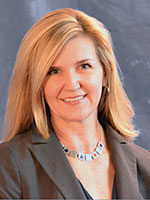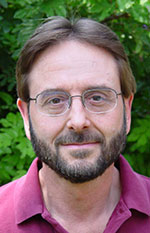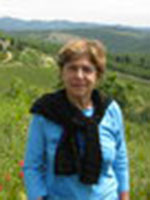Date: Fri 9/19/2014
Time: 11 AM – 2 PM
Location: 1670 University Blvd, Volker Hall Lecture Room B
Organizers: Richard Sarver
Overview
This half-day workshop is targeted at those who wish to learn successful strategies for securing winning proposals from the National Science Foundation. It is taught by experienced faculty who have received NSF grants and who serve as evaluators on NSF review panels and by NSF program staff. The focus of the workshop will be on explicating the types of education and research awards NSF supports and providing insights into what projects are deemed innovative and impactful by NSF. Lectures and discussion will include opportunities to address questions that will enable attendees to better develop their own NSF projects.
Targeted Audience:
SOPH & NORC faculty and fellows. Open to other members of the University, pending available space.
Panelists:
Eileen Anderson-Fye Ph.D.
Case Western-Reserve University: Robson Junior Professor, Anthropology
 Professor Anderson-Fye’s research focuses on the well-being of young people in times of rapid cultural and socioeconomic change. She currently has an NSF Senior Investigator Award to support the latest phase of a nearly two-decade study of the impact of secondary education for a unique cohort of young women in a developing world context. She also received an EAGER (Early Concept Grants for Exploratory Research) Award to support preliminary research regarding fat stigma among young adults in three countries, along with NSF Research Experience for Undergraduates (REU) supplements to extend the work to two additional nations. In addition, she has served as a reviewer for an NSF Senior Panel within the Behavioral and Cognitive Science Division of the Directorate of Social, Behavioral, and Economic Sciences.
Professor Anderson-Fye’s research focuses on the well-being of young people in times of rapid cultural and socioeconomic change. She currently has an NSF Senior Investigator Award to support the latest phase of a nearly two-decade study of the impact of secondary education for a unique cohort of young women in a developing world context. She also received an EAGER (Early Concept Grants for Exploratory Research) Award to support preliminary research regarding fat stigma among young adults in three countries, along with NSF Research Experience for Undergraduates (REU) supplements to extend the work to two additional nations. In addition, she has served as a reviewer for an NSF Senior Panel within the Behavioral and Cognitive Science Division of the Directorate of Social, Behavioral, and Economic Sciences.
Theodore Garland Jr Ph.D.
University of California, Riverside
 Professor Garland’s research is in the general area of evolutionary physiology, with a specialization in vertebrate locomotor behavior, exercise physiology, and quantitative genetics. He is interested in how organisms work and in how the ways they work may constrain the ways they evolve (and vice versa). Dr. Garland has studied lizards, snakes, and wild rodents, but his main study model is a long-term (70+ generations, 20+ years) artificial selection experiment in which four replicate lines of laboratory house mice have been bred for high levels of voluntary wheel-running behavior. He served as a program director in Population Biology and Physiological Ecology at the NSF for one year during 1991-1992. He has been funded by NSF via a Doctoral Dissertation Improvement Award, a Presidential Young Investigator Award, and several regular grants. He is currently the Editor-in-Chief of the Physiological and Biochemical Zoology & founding director of IDEA, Institute for the Development of Educational Applications.
Professor Garland’s research is in the general area of evolutionary physiology, with a specialization in vertebrate locomotor behavior, exercise physiology, and quantitative genetics. He is interested in how organisms work and in how the ways they work may constrain the ways they evolve (and vice versa). Dr. Garland has studied lizards, snakes, and wild rodents, but his main study model is a long-term (70+ generations, 20+ years) artificial selection experiment in which four replicate lines of laboratory house mice have been bred for high levels of voluntary wheel-running behavior. He served as a program director in Population Biology and Physiological Ecology at the NSF for one year during 1991-1992. He has been funded by NSF via a Doctoral Dissertation Improvement Award, a Presidential Young Investigator Award, and several regular grants. He is currently the Editor-in-Chief of the Physiological and Biochemical Zoology & founding director of IDEA, Institute for the Development of Educational Applications.
Carol F Stoel
Former Program Director, Division of Graduate Education, Education and Human Resources Directorate, National Science Foundation.
 Ms. Stoel served until May 2013, as a program director for the Integrative Graduate Education and Research Traineeships program (IGERT), the Science Masters program, and the NSF Ethics program. IGERT represents the National Science Foundation's flagship interdisciplinary training program. IGERT projects are still operational, but a new program, the NSF Research Traineeship is NSF’s current training program. The Division of Graduate Education also hosts the National Graduate Research Fellowship program, which annually awards 2,000 new fellowships. Ms. Stoel will speak about the NSF in general, and the Directorate and Division’s programs. She will also answer questions about particular programs. Ms. Stoel has been at NSF since 2004 and prior to that held positions in the non-profit world and served as the Deputy Director of the Fund for the Improvement of Postsecondary Education.
Ms. Stoel served until May 2013, as a program director for the Integrative Graduate Education and Research Traineeships program (IGERT), the Science Masters program, and the NSF Ethics program. IGERT represents the National Science Foundation's flagship interdisciplinary training program. IGERT projects are still operational, but a new program, the NSF Research Traineeship is NSF’s current training program. The Division of Graduate Education also hosts the National Graduate Research Fellowship program, which annually awards 2,000 new fellowships. Ms. Stoel will speak about the NSF in general, and the Directorate and Division’s programs. She will also answer questions about particular programs. Ms. Stoel has been at NSF since 2004 and prior to that held positions in the non-profit world and served as the Deputy Director of the Fund for the Improvement of Postsecondary Education.